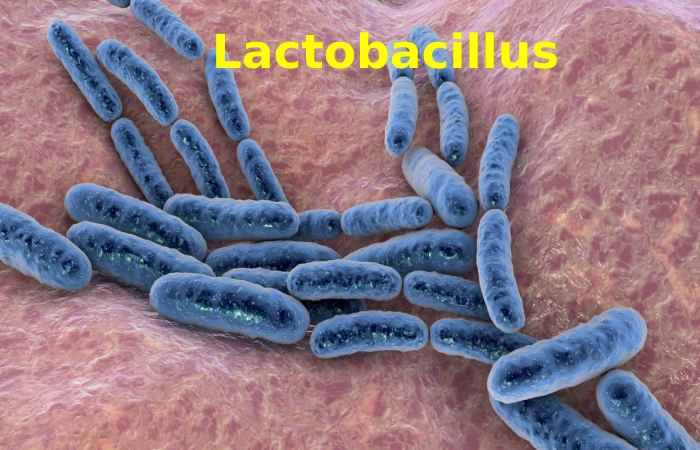Table of Contents
Introduction
Probiotics are helpful bacteria that live in the intestine and improve the general health of the organism, bringing benefits such as facilitating digestion and the absorption of nutrients and strengthening the immune system.
When the intestinal flora is not unstable, often after antibiotics or when you do not have a healthy and balanced diet, the intestine is populated by harmful bacteria, which do not benefit the immune system and leave the body disposed to diseases.
What are the Most Common Types of Probiotic Bacteria?

Although many types of bacteria can be consider probiotics, two specific types of bacteria are the most common probiotics:
- Lactobacillus
- Bifidobacterium
Probiotics are essential for our digestive system and also support our overall health. Whether we consume them with food or in supplement form, probiotics help maintain the optimal number of bacteria necessary for our health and performance.
Where are Probiotics Found in our Body?
Most people think that probiotics are primarily found in our intestines, but there are different locations where you can find these beneficial microorganisms for our health.
There are several locations inside and outside your body where you can find probiotics, including:
- In the intestine.
- In the mouth.
- Vagina
- In the urinary tract.
- On the skin.
- In the lungs.
Functions of Probiotics
The main work of probiotics, or good bacteria, is to maintain a healthy balance in our bodies. For example, nasty bacteria enter your body when you are sick and increase in number. As a result, it causes our bodies to lose balance. The good bacteria work to fight the harmful bacteria and restore balance within our body, making it feel better.
Among the most critical functions that probiotics perform in our body, we can highlight:
- They displace “bad” bacteria for health and prevent their proliferation.
- They favour the formation of essential nutrients such as vitamins, enzymes and fatty acids.
- It stimulate the formation of lactic acid by lowering the pH of the digestive tract.
- They support immune function.
- Break down and absorb medications.
- They help reduce inflammation.
- They facilitate the absorption of calcium, iron and magnesium.
- Reduce diarrhoea due to antibiotics, which alter the balance of the intestinal flora, which is restore thanks to these microorganisms.
- It allows for to reduction of atopic dermatitis in allergic infants.
Benefits of Probiotics in Athletes
If we talk about the benefits of this in athletes, we have to talk about the probiotics that are found in our digestive system.
Our intestinal tract is our most crucial barrier against external agents. Its functions include helping to assimilate nutrients. In addition, our organ has the most immune functions (80% of the immune system is found in the intestine) and endocrine functions (60% of hormone synthesis).
As an athlete, the use of probiotics brings about many improvements, such as excellent performance, faster recovery, less gastrointestinal discomfort, and reduced inflammatory processes. specifically, these are the functions that probiotics provide in the sports environment :
- Respiratory infections decrease.
- They improve immune function.
- They help recovery after exercise.
- It reduce the risk of gastrointestinal discomfort.
- They produce vitamins and improve digestion.
- They reduce free radicals.
- Maintain optimal glucose levels.
How Probiotics Help Improve Endurance and Athletic Performance
We have seen that probiotics have an essential role and contribute significantly to our well-being and general health. Still, if we focus on the sports field, the consumption of probiotics for athletes specifically helps to improve certain aspects of their performance. For example:
They Improve Recovery by Increasing the Absorption of Antioxidants.
Since free radicals are abundant after training, athletes need to meet them head-on with high amounts of antioxidants during recovery and throughout the day. When taken during recovery, probiotics increase the absorption of antioxidants and therefore promote additional free-radical fighting when you need it.
Some Probiotics for Athletes
It supports immune function by promoting higher levels of interferon. Several studies have shown an increase in interferons in fatigued athletes with the supplementation of healthy bacteria and, therefore, a decrease in diseases such as mononucleosis.
Probiotics Improve Digestion
By increasing the bioavailability and absorption of protein and fat. People who play sports regularly, whether professionally or amateurishly, have higher nutrient needs than anyone else, and these necessities are best met when digestion is improve.
Conclusion
Not all probiotics are indicate for everyone. The most excellent probiotic for you will depend on your health goals and fitness level. In addition, the different strains from which the other bacteria come will adapt to different situations, so when choosing a probiotic supplement, we recommend that you read what it is indicate for and what benefits it can bring you.
Also Read: What are Proteins? Types, Benefits, and More

